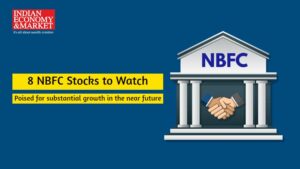By Keshav Karunakar
Investing in the initial Public Offer (IPO) is more or less like an arranged marriage. IPO Parties: In-laws – Promoters; Bride – Company; Brahmin (Third party) – Book building bankers; Other relatives – Broker; Dowry – Retail discount. The in-laws know everything about the product. They are on the sell side and aware of SWOT of the product. You are given a beautiful pitch by the Brahmin (Third party). Given a day or two to see/observe the product. The third party will keep you motivated by all tricks in the trade. You are pushed to the commitment by all folks who have no business post the marriage. Many a times deal is made sweeter by adding some dowry to it. The value of a product lies in the eyes of a buyer. For seller, there is only one value proposition, that is to get the maximum price. The buyer has to find if they need the product or not. So an investor needs to look-
Who are the sellers?
Any company starts with Promoter’s vision. There may be some angel investor on board in the beginning. Most of these angels are known to promoters. They believe in binary investing style. Either company works to 10x or dies down eating their money. Very high risk appetite.
Next in the chain is VC fund. These are intelligent institutional investors who are convinced on the business model, promoters execution skill and wants 25% + equity with the smallest of the capital invested. They want to make 10-100x from there on. High risk capital with 5 – 8 years. Then comes Private equity who want to board in the fastest moving train which can take it to the destination in the shortest possible time. If the Promoter is selling shares, go ahead. If PE is selling its shares, then wait for the euphoria to settle. They can make you believe that you are getting gold by showing you mud brick.
What is the purpose of selling?
If the promoter is selling his shares only to make money, then let it pass. If he is selling with reasonable valuation, keeping 51% stake and wants some money to grow business, then look into the company. If the promoter is GOI, then it brings discipline among management to perform. The main purpose of an IPO is to raise capital from the public, but at times the motives have been bad.
Who is the middleman?
The middleman’s only interest is to get its cut. If share price rises too fast, sell side abuses him. If it falls after listing, buy side abuses him. So look for credible middle man. If issue is small and middle man is unknown, how beautiful company it may be, you will be better off not buying it. Look for the past history of middle man.
What is left on the table?
Value promoters who can price shares at a premium. It gives an impression that guy is smart and confident. If he is around, he will make money. High priced IPO with good fundamental business history and execution rises only.
Is it only in the space?
Is this company a leader or yet another guy in this business? If it is leader and commands 30% market share in the industry, go ahead.
Quality of the management?
After promoters, look for management. If the promoter and management is same, prefer to go to a guy who has rich experience of execution and mostly first generation in the business. The first generation entrepreneur has everything to achieve. He struggles to get the business running. Second generation mostly gets ready made business with lots of easy money. Third generation gets everything and has only purpose to grow it bigger and better than previous generations. Education of management is important, but it is not only criterion to buy into the company.
Is it bad business, but good capable executive management or vice-versa?
If you find business is bad, but management is capable then go for it. A good manager will find out how to run a bad business profitable. A good business, but mediocre management will test your patience.
Status of the sector?
Has this sector been in huge demand? Is it going to be next wave and even paanwala understands it. Better to keep out of such a sector.
Promoter shareholding?
Post listing – it should not be less than 50%. If it is less, it has to be very mature business.
Performance of 3 years?
If you find a company performing too well since last three years don’t buy in the IPO. Buy after 2 – 3 years. Why? Most companies keep in mind timeframe when they would like to list. They start preparing and will outperform on all financial aspects to best possible margin. Now, once it gets listed, they lose the steam and go into hibernation. It is tired feeling after sprint. Avoid such companies.
Watch cashflow, ROE, ROCE?
Look into these numbers with a pinch of salt. If it is too good to believe. Don’t believe.
If company is less than 5 years old, find out sales growth. If sales growth is 40% plus, see if it can sustain this. If yes, sell your house and buy this company, if you are convinced on all other aspects. If a company is decade old, consistent sales growth is 20% plus, look for EBIDTA, PAT, CFO and capex plan. If things look fine, read further. If the company is more than a decade old, the IPO size has to be big enough to read.
Is there any dividend history prior to listing?
If it is paying dividend, check if you are buying a mature business or promoter has taken all the money from the company to his kitty. Avoid huge dividend paying companies. If the promoter has taken all the money generated by business, he has got his return.
What is the size of the issue?
If it is too big size, you will make more money in shorting Nifty for the week than applying for this IPO. If size is big, you need to read more since it is going to stay in your portfolio for long, you like it or not.
Is there any retail discount?
Don’t fall prey to this. The market will price it such that you will get only discount as a return.
Is there any anchor investor?
Find if there are smart long term guys, who have really seen a long cycle of companies. Most of the current set of anchor investor are one month traders. On every flip, they will stand in the queue first.
Who are the buyers?
QIB, HNI or retail. Why are they buying? QIBs will buy keeping in mind the stock position in the index. If the stock is going to be part of any index, they would like to buy so that they can beat the index. They also buy to help the middle man. Middleman gives them the best deal in allotment. HNI is a breed who is just looking to get a return on his leveraged money. They will mostly be attracted to small size issues. An operator is born from this class of investor. They have a different way to make money.
Is market in euphoric mood?
If the market is too euphoric about an IPO, skip it. When everyone follows same strategy to make money, no one makes money. The IPO market has become a lottery market now a days. Everyone has opened more than one demat account and applies for IPO.
What is the state of the market?
If market is bullish and IPO is coming, then be skeptical. If the market is bearish and IPO is coming, read it. It will give birth to a multibagger in your portfolio.
What is return expectation?
For one night stand, it should be ultra good. More than 40-50%. For portfolio return, it should be more than 18%.




















